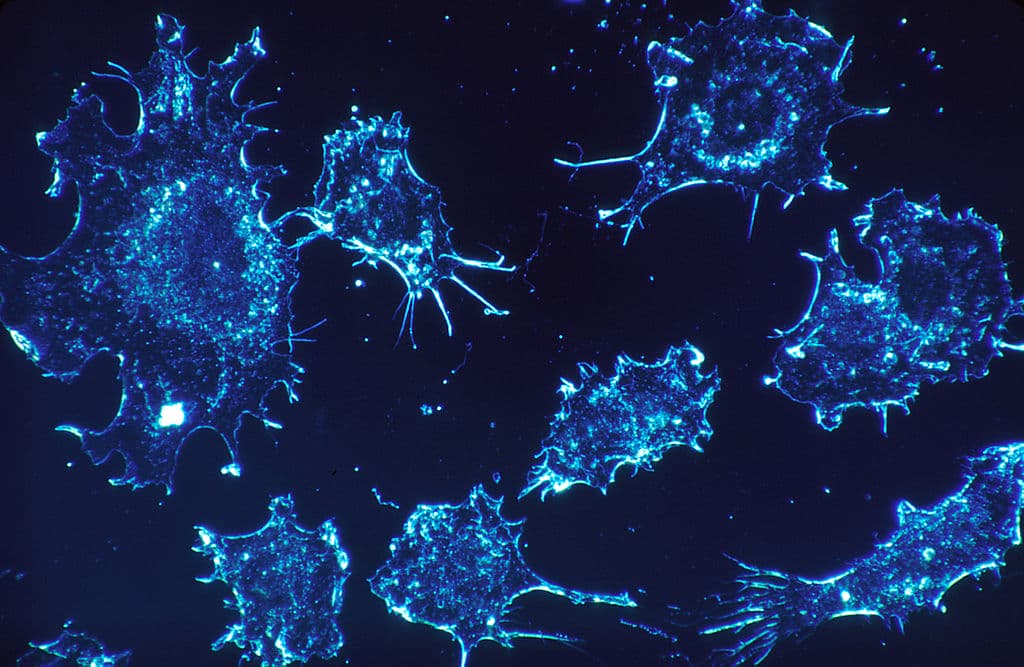CANCER GENETICS AND SYSTEMS BIOLOGY
According to recent estimates, by 2030, cancer will become the leading cause of death worldwide.
But what is cancer? Cancer is a disease characterized by the uncontrolled proliferation of cells that form a cellular mass and infiltrate organs and tissues, altering their structure and function.
Why does this happen? Cellular growth is controlled by genes that can “malfunction” due to genetic mutations.
Why do these mutations occur? Is cancer, therefore, a genetic disease? Can we define it as hereditary?
Mutations can be caused by environmental factors, carcinogens, lifestyle, and aging.
But is there also a predisposition? Is genetic profiling of cancer possible today? Does what we identify have an impact on therapy?
Cancer is a disease of the genome. Each person’s cancer is different from others, and each tumor has its own unique genetic anomalies. Some of these anomalies are clinically significant and, if identified and characterized, can be exploited to improve cancer detection, management, and treatment, as well as to help us understand how different patients respond to treatment.
The Cancer Genomics and Systems Biology Laboratory at the Department of Medical Biotechnologies of the University of Siena aims to develop new approaches to identify and understand the genetic and biological mechanisms underlying the genesis, progression, and treatment resistance of cancer. To achieve this, we use advanced technologies and highly automated systems, bioinformatics, molecular biology techniques, applied mathematics, and artificial intelligence concepts. The main activities involve analyzing genetic variations in tumors or molecular switches that underpin the survival of cancer cells and resistance to current drug treatments. The laboratory conducts genetic and functional analyses by examining genomic changes in many different types of cancer. In particular, it is possible to monitor genomic changes in tumor cells using liquid biopsy samples (i.e., tumor genome released by tumor cells into the patients’ plasma), detecting and characterizing specific alterations in the tumor DNA or RNA that may render it sensitive or resistant to various oncological treatments. Furthermore, the vast amount of data generated from these experiments is used to develop predictive computational models of cancer cell behavior and robust statistical models for interpreting these data, producing algorithms, signatures, and characteristic profiles of the tumor state.
Currently, the laboratory is managing four competitively awarded grants related to studying the genetics and therapeutic response of metastatic lung cancer and mesothelioma.
Active projects
PRIN 2022-PNRR (Projects of National Relevance – Ministry of University and Research)
Title: “Circulating biomarker-based approach to evaluate Tumor Mutational Burden in metastatic lung cancer patients”
Duration: 2023-2025
Coordinator: Prof. Elisa Frullanti (PI)
Budget for Frullanti’s Unit: €149,357
PRIN 2022 (Projects of National Relevance – Ministry of University and Research)
Title: “Multi-omics approach for the identification of non-invasive biomarkers of host and tumor response to immune checkpoint inhibitors in advanced lung cancer patients”
Duration: 2023-2025
Coordinator: Institute of Biomedical Technologies – National Research Council UNISI
PI: Elisa Frullanti – Director of Research Unit – Partner
Budget for Frullanti’s Unit: €148,191
INAIL – Research Activity Plan 2022/2024 – BRIC 2022 Call
Title: “Identification of the asbestos exposure fingerprint in mesothelioma” (ID19)
Duration: 2023-2025
Coordinator: Elisa Frullanti (PI)
Budget for Frullanti’s Unit: €75,200
THE Tuscany Health Ecosystem (PNRR- Ministry of University and Research)
https://www.tuscanyhealthecosystem.it/#
Title: Spoke 6 – “Precision Medicine & Personalized Healthcare”
Duration: 2022-2025
Coordinator Spoke 6-UNISI: Nicola De Stefano
UNISI PI: Elisa Frullanti – Director of Research Unit – Partner
Budget for Frullanti’s Unit: €227,100

